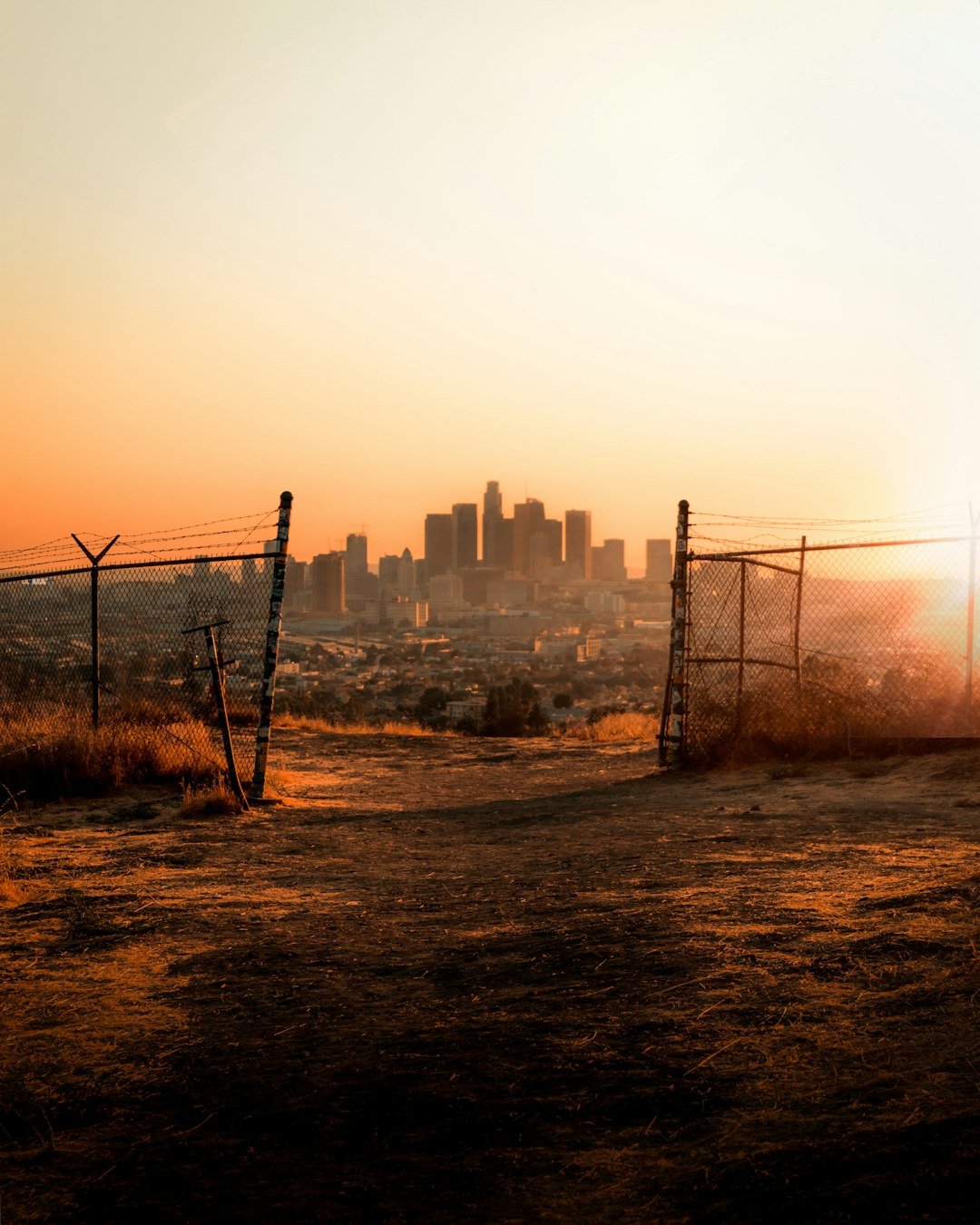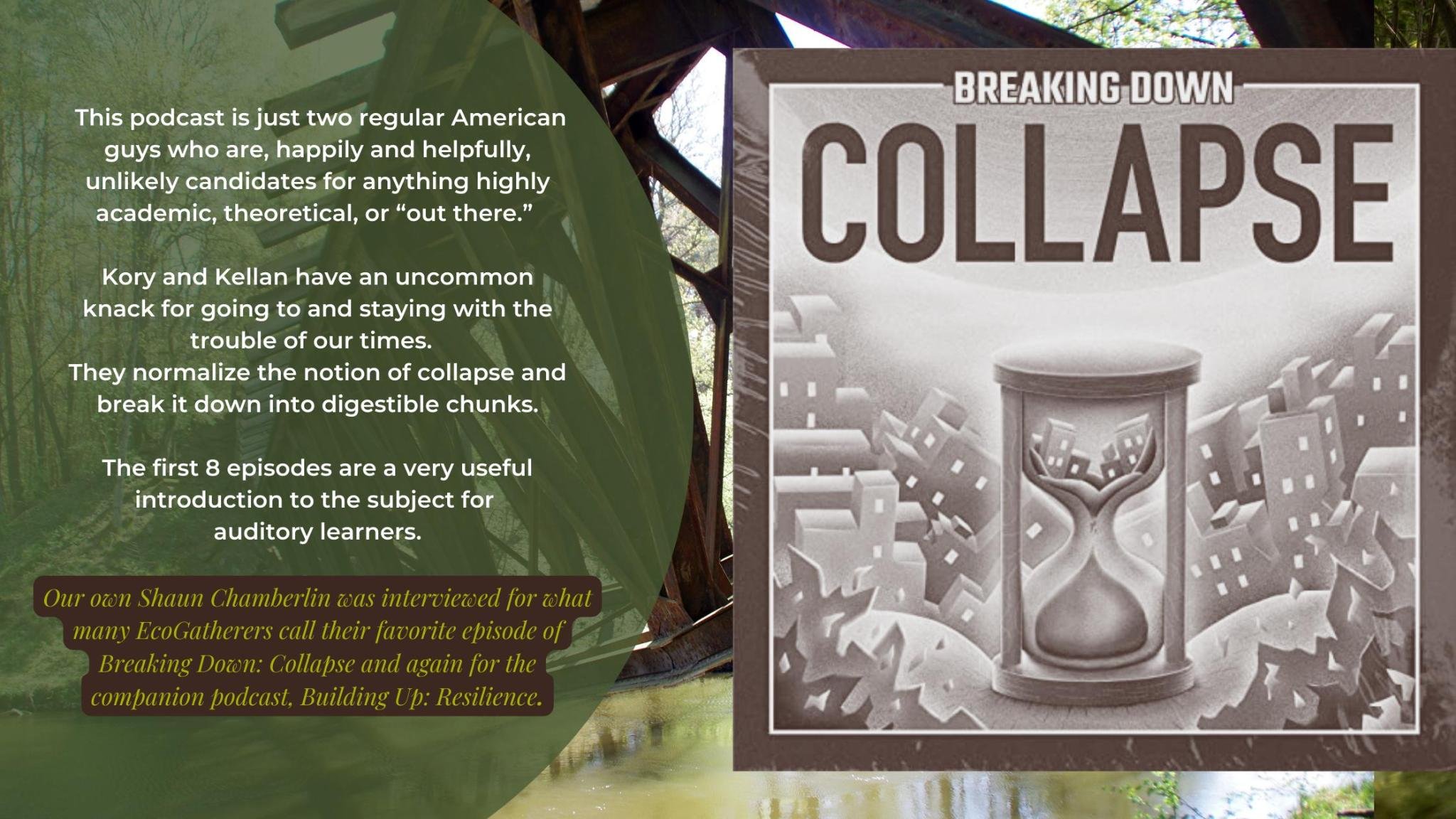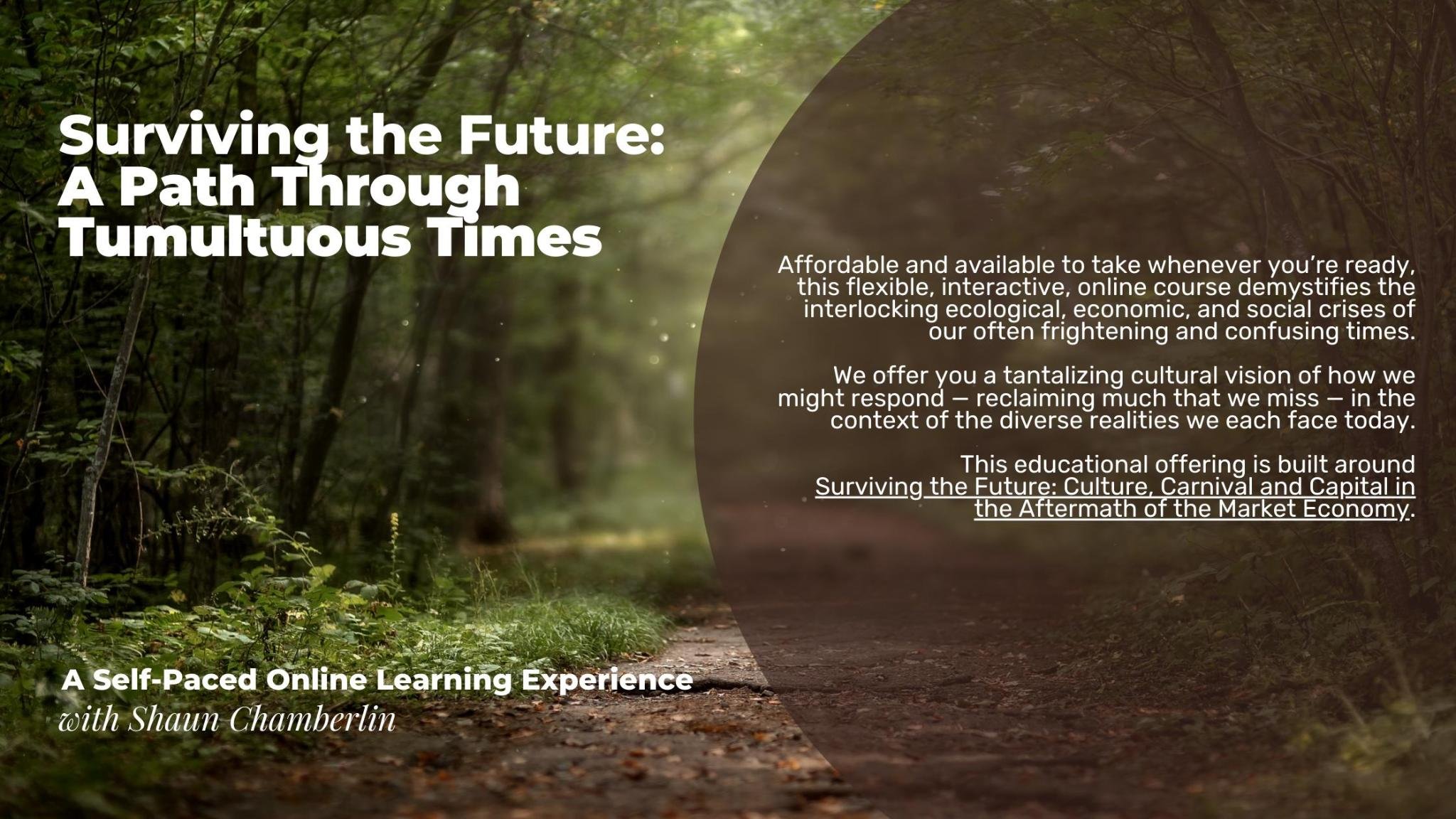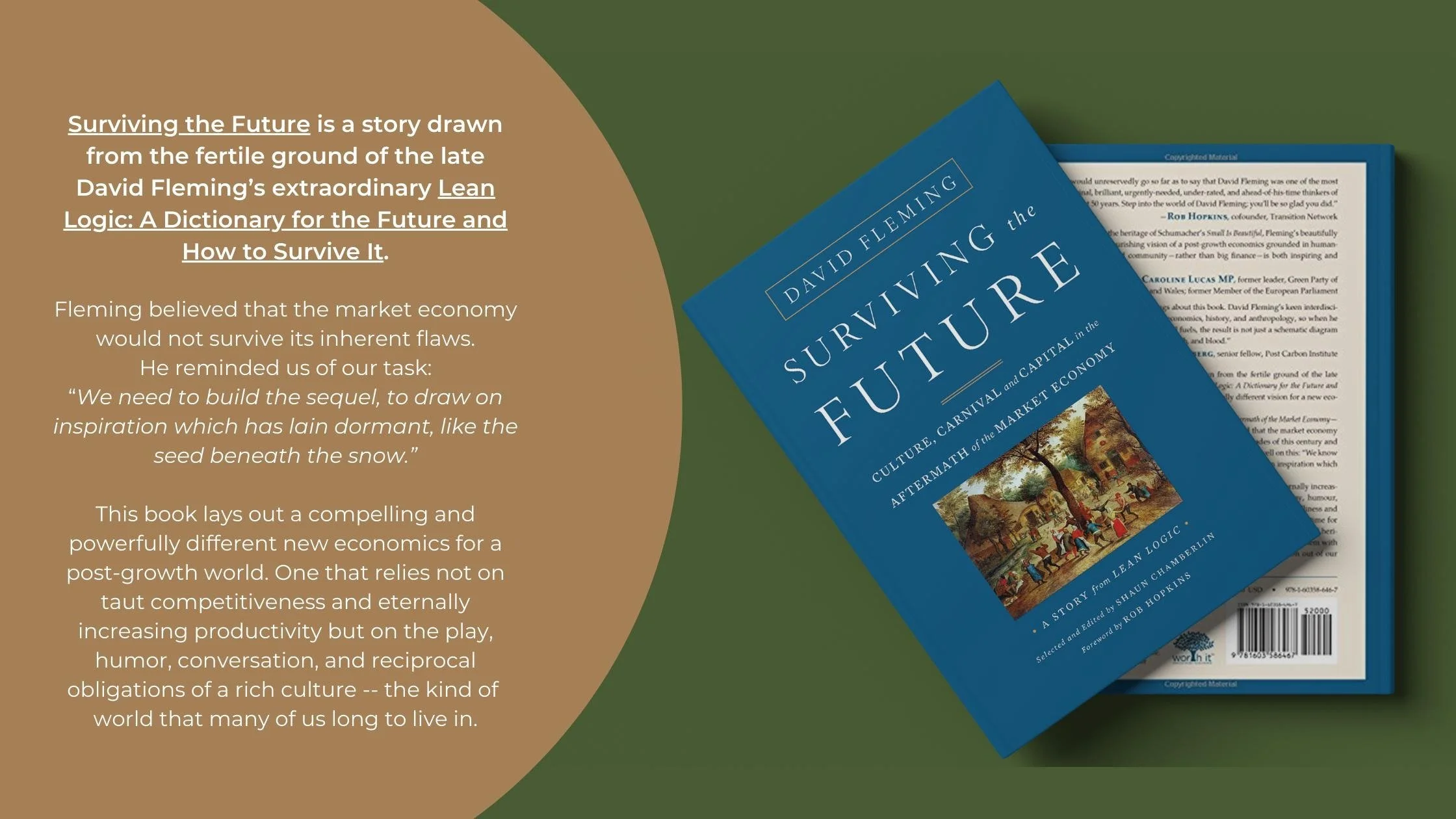Vocabulary for Our Time
Towering mountains are formed very slowly over millions of years, forged with the immense energy of the heat of the Earth. Occasionally, they take shape much more suddenly in a spectacular burst of activity -- a volcanic eruption. The tall, jagged peaks of the Himalayan mountains are still growing in places. Even so, parts of the mountain have always been coming down. Soil erosion on a walking trail, a loose pebble skidding down a ravine, or a sudden violent avalanche might all bring down pieces of the huge mountain, even as it grows. Once the growth of Earth's tallest mountain, Everest, slows and eventually comes to a halt (on a geologic timescale), the weathering of the mountain that is already happening will start to soften it's jagged teeth. We know what this looks like later in the story -- soft old mountains like the Appalachians were once giants resembling Everest. Even mountains come back down to sea level... eventually.
Like a mountain, our complex, and mostly monolithic modern civilization was formed slowly over time, and then all at once like a volcanic eruption. Even as parts of it continue to grow and complexify, other parts are being weathered away. Occasionally, large chunks are shaken loose. Reducing the height of our civilizational mountain is inevitable. No matter what, it will eventually stop growing altogether, and both the gradual and punctuated crumbling that is already happening will become more prominent. Even if we spend all our energy stacking up cairns to try to preserve the height, we will not match the pace of the weathering. What's more, staying high up on the mountain, attempting to construct cairns out of the rubble will not put us in a better, safe position. When things start to fall, how high up do you want to be?
Concepts, Words, Emotions
The prospect of involuntary, inexorable retraction might sound scary, especially at first. In truth, aspects of it are frightening, particularly because the pace of civilizational decline will absolutely be faster than geologic. People notice — and must adapt to — changes in height of civilization, in the size of economies, and in standards of living within their very own lifetimes. It is important to sit with our feelings — and with each other — as we reckon with the defining challenges of our time. In doing so, it becomes possible to move through denial, fear, and grief. We, like many before us, can come to accept that crumbling around the edges is no better or worse than the process of a jagged peak evolving into a rolling hill is. It just is.
Once you begin to accept the phenomenon, you can shift more of your attention from feeling fear or grieving losses to preparing for decline and moving with the shifting terrain. You can begin the generative work of building lives and lifeways better suited to changing conditions. And you don't have to do it alone. But you will have to figure out how to communicate with others about it all.
A lot of talk about the present state of decline involves language that only encompasses part of the predicament — for example, "climate emergency," "climate and ecological breakdown," or "economic instability." These phrases can be helpfully precise if the speaker intends to specifically discuss only a particular type of trouble. However, if the subject is intended to be broader and the concepts referenced more holistic, this manner of speaking can obscure. For example, speaking only about the climate crisis (or, even more neutrally, climate change), tends to over-emphasize just one of Earth's nine planetary boundaries. Worse, it can actually be intended as a way of ignoring the human-caused threats to and breaches of the Earth's other limits. Using climate as a stand-in or shorthand for all other global biophysical imbalances both understates the harm to planetary integrity and say nothing about the economic, social, financial, political, emotional, spiritual, and more-than-human crises that co-exist. This language can also train our attention narrowly on reducing carbon pollution or increasing carbon sequestration. Efforts to re-balance CO2 are undoubtedly important and worthy of widespread concern, they've been important for decades without sufficient response. When something is both extremely important, urgent, and functionally ignored, that is, in and of itself, a strong indication that the cause of the problem lies beyond our area of focus. Decades of inaction on climate and ecological crises signal that we need to pay more attention to upstream drivers of existential threats. We should also prioritize responses that are not predicated on the belief that humans will suddenly spring into action and solve things that have, for a long time, been solvable.
When we do, in fact, want to be more encompassing in how we talk about the challenges of our time, the difficulties of selecting (or inventing) appropriate language rears up. Perhaps you've encountered terms like "polycrisis," "metacrisis," "the climacteric," "the great turning," "the great simplification," "the great unraveling," among other terms, before. While each of these differs in its precise meaning and connotation, they are all near-suitable synonyms for the intersecting set of ecological, social, and economic crises that characterize the 21st century. Some of these words are favored by people who are focused primarily on communicating the multi-faceted and intersecting nature of contemporary challenges and changes. Others are preferred by those who are very concerned with not sounding too scary. (That said, few of these words are not frightening.)
Proponents of some terms may privately admit that the language they use is intentionally understated. They favor vocabulary that is less likely to get them labeled alarmist or unprofessional. They also understandably want to increase the chances that newcomers to the notion will engage with their messages. It is essential to communicate effectively with people who haven't yet put many of the pieces together or reckoned with the severity of our present predicament. And it is important to help fresh listeners stay with the trouble. There is a lot to uncover, to serve, and to metabolize -- it is important that newcomers not turn away too soon.
We appreciate these considerations, recognize their validity, and sometimes prioritize them. To be clear, we're not knocking any of these terms. We find several of them quite useful in different contexts. As with any sensitive topic, we sometimes modify our language to suit the setting, the audience, the moment. We try to use a lot of care in our communications, but we also try to balance care with courage.
Collapse
At EcoGather, we use the word collapse to describe the current and ongoing state of modernity. We like this potent term for several reasons, not the least of which is its directness. It matches the intensity of the predicament and demands the attention it deserves. When we speak of collapse, we don't mince words, we don't treat our readers or conversational partners as needing protection from that which threatens us all. The word lets us get to the heart of what has been happening. It names what is going to keep happening for some time, even if the powers that be suddenly start taking things seriously and acting as though our lives depend on real leadership.
In just two syllables, collapse simultaneously presents both the predicament and, somewhat surprisingly, the solution — all while implying the inevitability of the general outcome. Collapse can feel — and be — absolutely disastrous if we do nothing to prepare. Yet, if we are aware that it is happening, engaged in unpacking its causes, and intentional about making meaningful responses, we can open up real opportunities to proactively reorient our lives, our relationships, and our efforts. None of this will prevent us from experiencing volatility, disruptions, losses, and pain. But it can position us to bear less of the brunt, to be sheltered from the extremes, to have more control over our descent. Being collapse aware and responsive not only positions us, personally and presently, for a softer landing — but can also help us to create — and invite others into — refuges amid the ruins. By responding now, we can contribute to reducing the likelihood of further extinctions and protecting patches of real possibility for future beings, human and otherwise.
It is tricky to put words to a complex, unprecedented set of circumstances and conditions. It's hard to admit that we already exist within a thing-we-can't-name. On top of that, we're sensitive to the fact that many worthy efforts and activists get ensnared in unhelpful semantic debates about how they name and frame their movements. (As recent examples, we point to the tactically distracting push-back against movements like Black Lives Matter and Extinction Rebellion. One does not have to support these movements to recognize that the discussion around them often devolves to debate about or based on their names, not their actual agenda, strategies, or recommendations.) But those of us who spend a lot of time talking about, educating on, and figuring out how to respond to collapse require useful, if imperfect, vocabulary. It is simply not feasible to slip phrases like "intersecting ecological-social-economic crises" or "involuntary, inexorable decline occasioned by the irresolvable incompatibility of dominant cultural stories, economic motivations, and the needs and limits of the living world" into the middle many of our sentences. Among the initiated, we shorthand.
For us, the conveners (and many members) of the EcoGather community, talking about collapse feels more real and approachable than constantly referring to global polycrisis. It avoids abstraction. The clarity and punch of collapse helps us focus on what we can do in response to something that will effect all of us, everyone we love, and all beings we have empathy for or kinship with.
Your reaction to the word collapse may be different than ours. It may change as you are exposed to it. Or it may not. Embracing or using the word is not mandatory. We'd never require that anyone use particular language or affix certain labels (e.g., collapse-aware) to (part of) their identity. We only ask that you make a good faith effort to understand why and how we use the the term. That way, we won't need to spend time debating its inherent imperfections or get caught up in defending it's utility. The hour is late, we must relate. We want to be responsive, together.
Collapse: Cataclysmic, Climacteric, Catabolic, or...
Depictions of planet-spanning crises, both mythic and pop-cultural, often emphasize instant and complete upheaval. As a result, for some, pairing the word collapse with the slow-motion calamity our limbic systems are sensing, can feel like an odd fit with or without precise words or substantial understanding of causation. So before you decide whether collapse is a word that works for you, it can be helpful to unpack your associations with it.
When people hear collapse, they startle.
Sudden. Loud. Violent.
An all-at-once ending.
"The" apocalypse.
But if we actually look back to historical collapses and even the Biblical description of the apocalypse, we see that fast-pace of these concepts has, more or less, also been sped up in the age of Great Acceleration. But Rome was neither built nor undone in a day. Indeed, the archeo-historical record demonstrates that for more than 6000 years, humans the world over have assembled, complexified, and experienced the undoing of great civilizations. As civilizations increase their size, they typically also increase (and become ever more dependent upon) their complexity. Over time, however, the benefits of ever-increasing complexity begin to dwindle. Tailwinds become headwinds. Complexity is costly to maintain, so slippage starts, and before long, these once resplendent and resilient societies and economies become vulnerable to collapse. Each has its own stories of ascension and its own catalysts of collapse, but some version of that rise and fall is embedded in the stories of Rome, the Mayan Civilization, Easter Island, Cahokia, Chaco Canyon.... and on and on... Some of these civilizations were relatively compact; their collapses, while devastating to their peoples and places were of limited reach. Others were imperial in their stature and spread; their unwinding, like their formation, was slow, episodic and uneven. None, however, were as vast and interconnected as our present globalized techno-industrial behemoth. In the words of Joseph Tainter, “No longer can any individual nation collapse. World civilization will disintegrate as a whole.” But disintegration is not necessarily disappearance or extinction - there will be survivors. And the survivors will write the sequel.
To be clear: when we refer to collapse, we do not mean a singular, immediate catastrophe. Rather, we are describing a gradual process with an unpredictable pace that will often be punctuated by events of particularly significant destabilization and periods of greater loss. An uneven process. We stay away from predicting much about the future other than its fundamental uncertainty and probable diversity, we anticipate a directionally downward and inward movement with some lurches. In other words, we forecast more of that we've been experiencing in recent years.
In arriving at this loose prediction, we are informed by David Fleming's concept of a Climacteric. The word itself is an interesting choice. He describes a twenty-first century during which a complex arrangement of dominoes tip each other over. There will be deep global deficits in energy, water, food, arable and fertile land, and rising acidified oceans (which can neither provide food nor store carbon). Fleming reminds us that things will get worse when we begin to experience invaded ecosystems, failure of keystone species, and depleted mineral stores. Thus, his Climacteric features both a whole system thrown into chaos and concomitant resource scarcity that will make it hard to maintain infrastructure and meet human needs. Fleming predicts a decrease in standards of living for those in wealthy nations and substantial out-migration of people in poorer, hotter, already less stable places. All of these changes will increase societal pressures and, in turn, can cause further economic and social fractures - extreme social and class polarization, tighter identity-based grouping and fierce fighting. This kind of fracturing and turbulence can cause the rule of law to crumble and notions of justice to morph (something we’ve also started to see in the United States and elsewhere). All of these shifts interrupt the ability of education systems to hand down culture and competence -- especially if education does not adapt and respond. Fleming believed firmly that the market economy would not survive its inherent flaws and that failing to change course would lead to the “deep, interconnected, planetary tragedy" of the Climacteric. But he did not traffic in predictions of doom or dwell in despair. Instead, he produced a rich body of work that can guide us in building what he called humanity's "sequel" and advised us to draw on "inspiration which has lain dormant, like the seed beneath the snow.”
John Michael Greer also does a particularly good job of distinguishing totalizing catastrophe from what he calls catabolic collapse. He argues that by using a one-time windfall of carbon energy (which he compares to winning the lottery) to expand our infrastructure and the complexity of our systems (capital) we failed to account for the energetic, material, and economic cost of maintaining these systems - the maintenance cost of capital. As our windfall dwindles, and our ongoing "paycheck" (the resources and energy we are able to sustainably generate without super-concentrated fossil energy) remains the same, the ways that we allocate resources will have to change. Not only will we be unable to continue building infrastructure and expanding complexity, we will have to begin making cuts to that which we already have. Since the windfall does not disappear all at once, these cuts will happen in a step-wise fashion. Once a cut is made, either in advance voluntarily, or out of sudden necessity, the next step down is lower than the previous one. Each new plateau is the progression of catabolic collapse. It may look like less frequent upkeep of existing capital, scaling back existing programs and eventually having to eliminate them altogether. The only way to exist sustainably without collapsing (on any timeline) is to create only as much capital as can be maintained within the "budget" of the incoming paycheck of energy and resources. By expanding beyond the bounds of sustainable upkeep, the system then has to break itself down - hence the term catabolic - a form of metabolism, breaking down complex food into simple pieces for absorption. So, how can an understanding of biological metabolic processes be used as a helpful metaphor for the path we are on together? With breaking down, comes the possibility of rearranging and building something new, something nourishing.
From Collapse-Aware through Collapse-Accepting to Collapse-Responsive
We've introduced you the shorthand we prefer, and distinguished this kind of collapse from the cataclysmic event Hollywood might have primed you for. Now, let's turn our attention back to what we sense shifting all around us and, importantly, how we might choose to move in response.
If you’ve lived your life in the (literal) valleys and plains, far from the great peaks, the mountain metaphor we began with may not be as clarifying as it was for those of us who live at altitude. An alternate comparison — especially one that is human-made and moves on timescales we can comprehend — might be helpful. So let's think about a block stacking game like Jenga, pictured above for those who need a reminder. The game of Jenga is set up by stacking blocks in levels of three. The blocks placed next to each other along their long sides and at a right angle to the previous level. Then, to build the tower ever higher, players take turns removing blocks from any level of the tower and placing those blocks on the topmost level. The game ends when the tower falls. There's no other option. The tower is weakened at its foundations and made top-heavy by the players -- those with power and agency -- until it falls. Game over. Always, eventually, the outcome is collapse. Particularly skilled players may be able to forestall this outcome, they may be able to reassemble a tall but precarious tower that has just one or two blocks on each row. But even the most elite and well-coordinated Jenga players cannot conjure infinite height from the finite set of game pieces.
Once you reckon with the fundamental instability of the structure of modernity, you can pretty quickly disabuse yourself of the notion that it is okay to keep extracting more. You certainly would not keep taking blocks from underneath you in order to keep climbing up, even if everyone around you wanted to march ahead. Collapse is the fate of a large teetering structure -- one that becomes more unstable as it grows in height. But only default rules say that players must keep extracting blocks and using them to support the tower's uni-directional growth. At any point, the players could smile at each other as say: My, what a wonderful job we did. But this is getting precarious. It is bound fall. So shall we see what else we can make? They can recognize that the wooden blocks of a Jenga game can be arranged in countless configurations. There's no need to start with the tallest tower possible. Nor is it necessary to add the blocks that have been eased out of the tower back to the top. We can build a wide array of lower, flatter, more stable, and perhaps far more interesting structures with the same pieces. (Those who hang out with kids may have observed that this is what they tend to do after the first or second crash. They quickly tire of resetting the tumbled-down tower and start playing creatively with the pieces.)
Yet that's not the only lesson to derive from Jenga. If we inhabit the metaphor differently, seeing ourselves not as the players but as the blocks, we can think about how we might want to position ourselves when we know collapse is coming. The lesson: Stay close to ground; connect with the land. You may need to be careful about falling debris, but you don't have to worry about dropping from a great height.
Certainly, the work of building from the ruins is good, essential work. But stacking up and trying to maintain height is not only direction. What other shapes can we imagine? And if we untether our creativity from the habits of strategic planning and carefully constructed design, what presently unimaginable shapes might emerge?
If you've come this far, accept the premises, and can tolerate the language, the next question that you face is whether to do anything in response. The EcoGather community is mostly made up of folks who have determined that they do, if fact, want to live their life differently -- a little or a lot -- in response to that which we cannot deny. And so we come together and learn with each other, in large part, for the purpose of figuring out how to meaningfully respond. Our responses will not all mirror one another's. This is a good thing. We already said we wouldn't try to predict much about the future -- but we are comfortable with the notion that it will be diverse. In fact, we are charmed by the idea of returning to a world of many worlds. This means that we can hold space for lots of different visions, interests, priorities, responses, and roles. And we can cohere around a shared desire to respond in ways that are both personally and collectively meaningful.
If you'd like to go further with us, we welcome you.
If you are not yet sure, we appreciate your consideration and we encourage you to keep exploring and learning and making space for considering an alternate paradigm around what the future holds, and what worlds we are capable of creating together.
As you continue to reflect, we offer just a few more words:
Pascal wagered, "Let us weigh the gain and the loss in wagering that God is. Let us estimate these two chances. If you gain, you gain all; if you lose, you lose nothing. Wager, then, without hesitation that He is.”
To prepare for collapse is to give up certain luxuries and indulgences in favor of a simpler, yet possibly more enlivening way of being.
To reject collapse is to risk extreme vulnerability if collapse does occur.
Whether collapse happens in your lifetime or not,
to wager that it will happen is a small cost
to possibly save everything.
Or at least, to possibly open yourself and others
to more fulfilling ways of being, relating, and belonging.
To wager that it is not going to happen,
is to gain very little and
to possibly lose everything.
Wager then, without hesitation, that collapse will.
To learn more, consider listening to the first eight episodes of one of our favorite podcasts, or enrolling in our self-paced, online learning journey A Path Through Tumultuous Times with Shaun Chamberlin.










